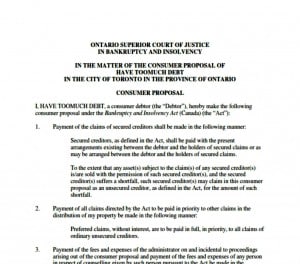 Are you the poster child for financial responsibility? You have a good job, you take care of your family, your bill payments are all current and you have an excellent credit score. So, what can possibly be wrong with this picture and why would we think you should tank your credit score ratings, declare bankruptcy and improve your life?
Are you the poster child for financial responsibility? You have a good job, you take care of your family, your bill payments are all current and you have an excellent credit score. So, what can possibly be wrong with this picture and why would we think you should tank your credit score ratings, declare bankruptcy and improve your life?
The reality is that as many as 70% of bankruptcy filings are made by people with strong credit scores, according to TransUnion. Why isn’t a great credit score a predictor of whether or not someone will go bankrupt? “Many people are hopelessly insolvent but they’re not delinquent. From a credit report they are making their payments on time but they’ve got no reasonable prospect of ever paying this debt off,” said Mr. Mantin, senior vice-president of E. Sands & Associates Inc. According to Ira Smith, President of Ira Smith Trustee & Receiver Inc., “This is a very telling comment. Most people believe that as long as you make the minimum payment, you are “current”, especially when it comes to credit cards, even though deep down you know that you will never be able to pay off the debt. Current used to mean that when you received the credit card statement, you paid off the balance in full and you were delinquent if all you made was the minimum payment. This is a huge societal mind shift.”
When you are staying afloat by making the minimum payments, it doesn’t take much to tip you over the edge. Any major life changing experience can do it – loss of job, divorce, serious health issues, unexpected major expense – and all of a sudden you go from paying your bills on time and having a great credit score to not paying your bills and looking at bankruptcy.
What should you do? If you are struggling with a mountain of debt, even if you are making your monthly payments and have a great credit score, contact Ira Smith Trustee & Receiver Inc. A great credit score won’t solve your debt problems, but a consumer proposal or bankruptcy can help you both financially and emotionally, alleviating the monthly stress when the bills are due. Starting Over, Starting Now you can take charge of your financial future and improve your life.





